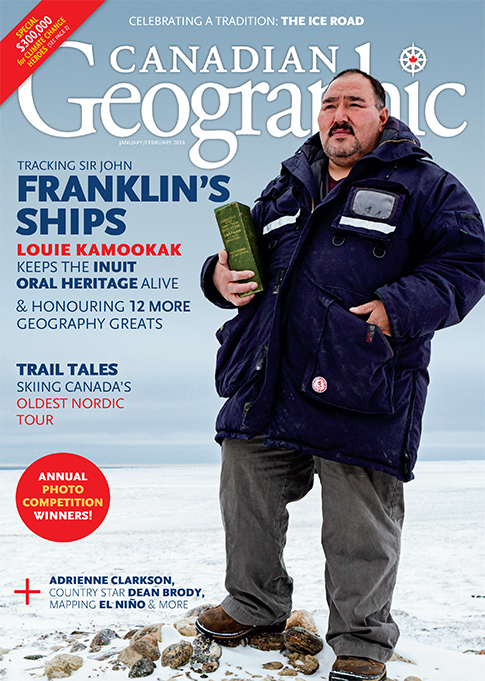
Science & Tech
20 Canadian innovations you should know about
Celebrating Canadian Innovation Week 2023 by spotlighting the people and organizations designing a better future
- 3327 words
- 14 minutes
This article is over 5 years old and may contain outdated information.
Science & Tech

If apple pie is a traditional American dish, the McIntosh apple is as Canadian as it gets. In 1811, John McIntosh discovered an apple sapling on his farm near Dundela, Ontario, which subsequently produced a fruit with a great taste, texture, aroma and appearance. It was also ideally suited for growing in Canada’s colder climate. John’s son Allan established a nursery for the species and promoted it widely. It has since become one of the most popular apple varieties in Canada and around the world.
The McIntosh was the first of a number of plant/food innovations developed in Canada. While others may have required more Canadian ingenuity, the following six items, like their apple predecessor, were also all engineered to suit, and thrive in, a distinctly Canadian habitat. Eat, er, read on.
Spartan apple
Here’s another great Canadian food invention: the Spartan apple. The variety was first developed in Summerland, British Columbia, by R.C. Palmer at a federal experimental farm. Interestingly, the exact parentage of the species is in question. It was once thought to be a cross between a McIntosh and a Newtown, but testing has ruled out the Newtown.
Red Fife wheat
Canadian wheat is known as some of the finest in the world. The oldest of the nation’s wheat varieties is Red Fife, which was first grown in Peterborough, Ontario on the farm of Dave Fife in 1842. Red Fife was known as a fine milling and baking wheat, and by the 1860s it was being cultivated across the nation. Red Fife was considered the country’s wheat standard for more than four decades, from about 1860 to 1900.
Marquis wheat
In the early 1900s, a Canadian produced wheat called Marquis replaced Red Fife as the nation’s top wheat. It was a cross between Red Fife and Hard Red Calcutta. Marquis matured 7 to 10 days earlier than Red Fife and produced a great yield of 41.6 bushels per acre, while retaining the baking quality of Fife. The yield and quality of Marquis made Canada the largest wheat-exporting nation on the planet.
Canola
Its name kind of gives it away a bit. Canola, the globe’s only made-in-Canada crop, was created in the 1970s by researchers from Agriculture and Agri-Food Canada and the University of Manitoba. Today, canola is considered one of the most important oilseed crops in the world and has proved to be the most lucrative for Canadian farmers. Vegetable oil made from canola plant seeds also lays claim to being the healthiest vegetable oil on the planet.
Yukon Gold potato
The Yukon Gold potato naturally was created in Canada. Bred at the University of Guelph in 1966, the Yukon Gold is known for its longevity in storage, as well as being a very good potato for baking, boiling and French frying. It was released to market in 1981.
Best potato for French fries
If you eat French fries, there’s a good chance you’ve eaten a Canadian food innovation. The Shepody potato, released by Agri-Food Canada’s research lab in Fredericton, New Brunswick, in 1983, quickly become one of the world’s most popular potatoes for French fries. The Shepody is known for its short growing season and high yields.
Are you passionate about Canadian geography?
You can support Canadian Geographic in 3 ways:

This story is from the January/February 2016 Issue

Science & Tech
Celebrating Canadian Innovation Week 2023 by spotlighting the people and organizations designing a better future

Wildlife
Canada jays thrive in the cold. The life’s work of one biologist gives us clues as to how they’ll fare in a hotter world.

Travel
The trail started with a vision to link Canada coast to coast to coast. Now fully connected, it’s charting an ambitious course for the future.

Environment
As cities and towns continue to expand into our wild landscapes, conservation gardens can provide refuge for Canada’s plummeting biodiversity